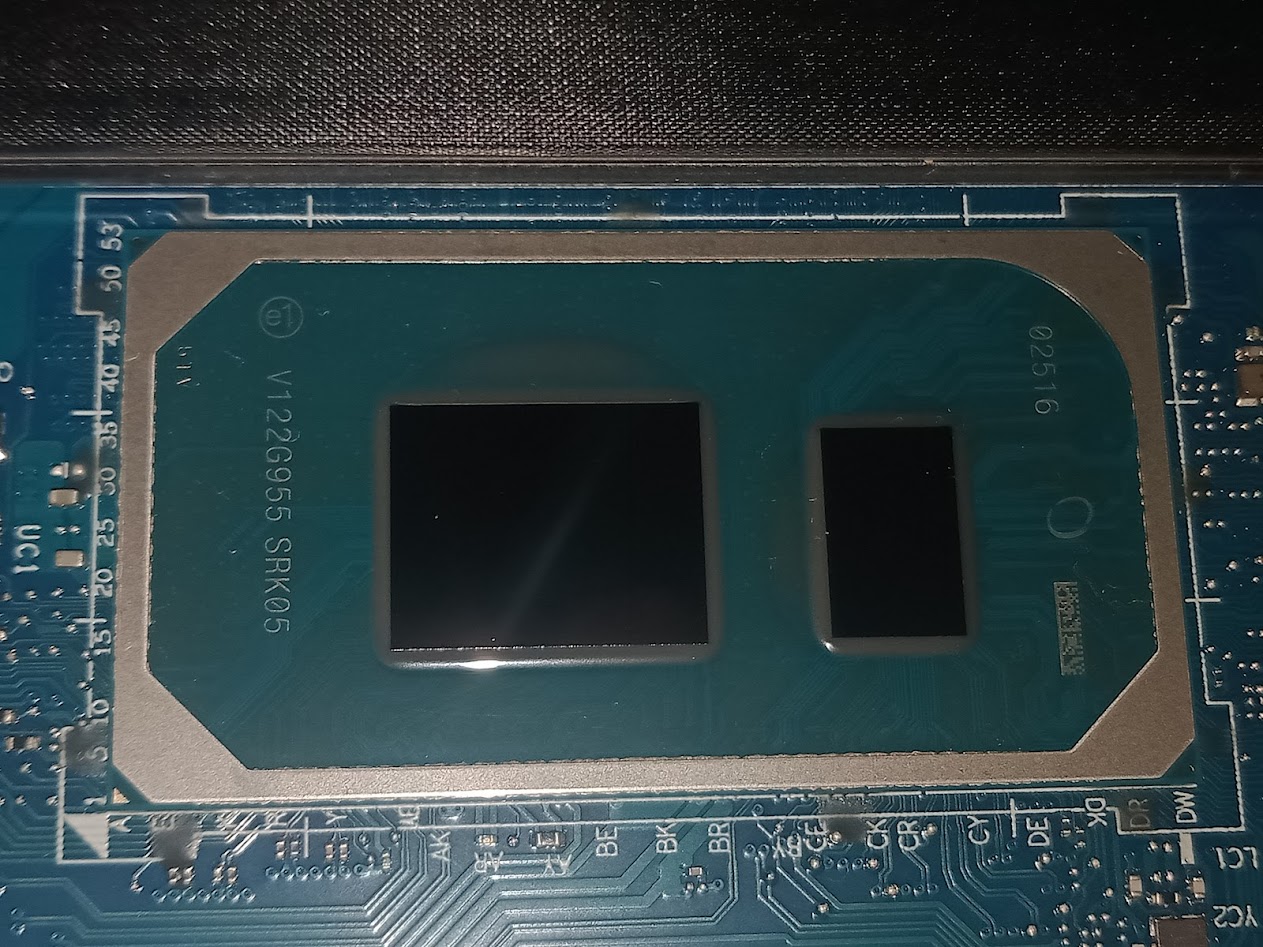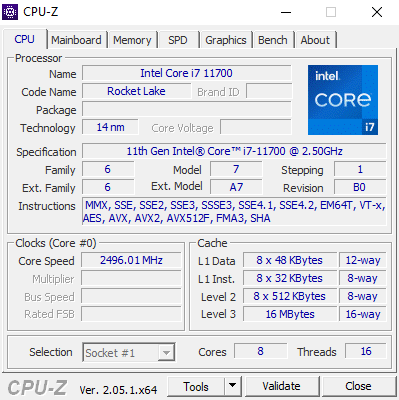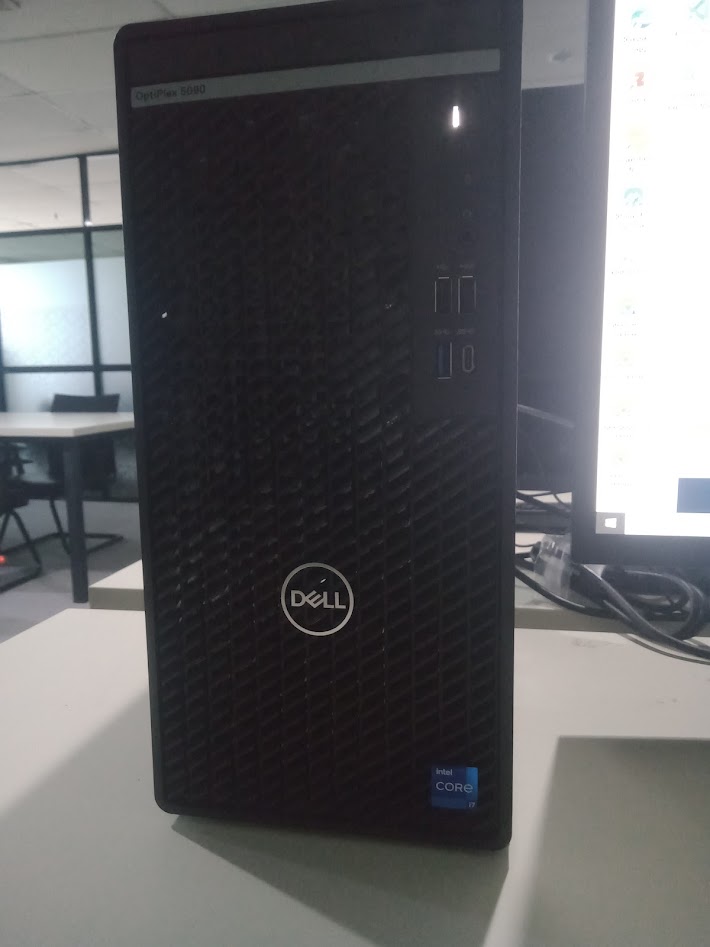Comparing: Intel Core i5 1135G7 vs Intel Core i7 11700
In this comparison, we analyze two Processors: Intel Core i5 1135G7 and Intel Core i7 11700, using synthetic benchmark tests to evaluate their overall performance. This side-by-side comparison helps users understand which hardware delivers better value, speed, and efficiency based on standardized testing. Whether you're building a new system or upgrading an existing one, this benchmark-driven evaluation offers valuable insights to guide your decision.
Specification Comparison Table
This specification comparison presents technical details of several devices or components to help you understand the key differences between each option. Use this table as a reference to determine which device best suits your needs.
| Specification | Intel Core i5 1135G7 | Intel Core i7 11700 |
|---|---|---|
| Architecture | x86 | x86 |
| Technology | 10 nm | 14 nm |
| Clock | 2.4 GHz - 4.2 GHz | 2.5 GHz - 4.9 GHz |
| Core/Thread | 4 / 8 | 8 / 16 |
| Segmen | Mobile | Desktop |
Submission Comparison Table
This submission comparison table displays the number and details of benchmark data submissions from various devices or components. This information helps you understand the performance based on the benchmarks that have been tested, as well as providing an overview of the consistency and popularity of the available benchmark results.
| No. | Benchmark Software | Intel Core i5 1135G7 | Intel Core i7 11700 |
|---|---|---|---|
| 1 | Cinebench - 2003 |
4548 cb |
8154 cb |
| 2 | Cinebench - R11.5 |
10.37 pts |
23.63 pts |
| 3 | Cinebench - R15 |
936 cb |
2153 cb |
| 4 | Cinebench - R20 |
2195 pts |
4217 pts |
| 5 | Cinebench - R23 Multi Core |
5181 pts |
11206 pts |
| 6 | PiFast |
15sec, 570ms |
12sec, 510ms |
| 7 | SuperPi - 1M |
8sec, 157ms |
6sec, 921ms |
Submission Comparison Chart
This chart visualizes the benchmark scores comparison between two hardware devices based on submitted data.
Media Gallery
A collection of photos of tested hardware. These images can help you identify the physical form, model, and variant of the hardware in question. These photos are from our own documentation, and if they are not available we may not be able to document them.
About Hardware Intel Core i5 1135G7
The Intel Core i5-1135G7 is a quad-core mobile processor introduced in late 2020 as part of Intel’s 11th generation Tiger Lake lineup. Designed for thin and light laptops, this CPU delivers a strong balance of performance, power efficiency, and modern features, making it a popular choice for both casual users and professionals. Featuring 4 cores and 8 threads through Hyper-Threading Technology, it operates at a base clock of 2.4 GHz and can reach up to 4.2 GHz with Intel Turbo Boost, ensuring smooth multitasking and snappy responsiveness for day-to-day applications.
Built using Intel’s advanced 10nm SuperFin process, the i5-1135G7 offers improved efficiency and thermal performance over previous 14nm generations. With a configurable TDP ranging from 12W to 28W, OEMs can adjust the performance envelope depending on the device’s thermal design. The standout feature of this processor is its integrated Intel Iris Xe Graphics, equipped with 80 Execution Units and a dynamic frequency of up to 1.3 GHz. Compared to older Intel UHD Graphics, Iris Xe brings a massive leap in performance, capable of handling casual gaming, 4K video playback, and GPU-accelerated workloads like video rendering or image editing.
In benchmark tests such as Cinebench R23, the i5-1135G7 scores around 5661 points (multi-core) and 1334 points (single-core), showcasing excellent performance for a low-power chip. These scores reflect its capability to handle modern productivity software, web-based workflows, and even creative tools like Adobe Photoshop or Premiere Pro though for heavier workloads, a higher-end CPU may still be recommended.
Real-world performance testing was done on a Lenovo IdeaPad Slim 3i 14ITL6, a budget-to-midrange laptop equipped with 12GB DDR4 3200MHz dual-channel memory (8+4 configuration). This setup, combined with Windows 10 and Windows 11 22H2, allows the i5-1135G7 to fully utilize its integrated GPU and high-speed memory interface for a snappy and responsive user experience.
Whether you're a student, a professional, or a casual user looking for a capable, energy-efficient processor, the Intel Core i5-1135G7 stands out as one of the best value choices in the ultrabook category.
Hardware Detail:
Device: Lenovo IdeaPad Slim 3i 14ITL6
RAM: 12GB DDR4 3200MHz Dual Channel (8+4)
OS: Windows 10, Windows 11 22H2
Friday, 06 August 2021 04:34:04 | Update: 1 month ago
About Hardware Intel Core i7 11700
The Intel Core i7-11700 is a powerful desktop processor released in Q1 2021, as part of Intel’s 11th Generation Rocket Lake family. Designed for enthusiasts, gamers, and content creators, this CPU offers a solid balance of single-threaded and multi-threaded performance. It features 8 physical cores and 16 threads, making it ideal for tasks such as gaming, streaming, 4K video editing, 3D rendering, and heavy multitasking.
With a base clock speed of 2.5 GHz and a maximum turbo frequency of up to 4.9 GHz, the i7-11700 delivers strong performance out of the box. The processor is built on Intel’s 14nm process node, but with significant architectural improvements over the previous generation, notably higher IPC (Instructions Per Cycle) thanks to the Cypress Cove core design. Despite using the older 14nm process, these architectural upgrades allow the i7-11700 to compete closely with AMD's Ryzen 7 5000-series CPUs in many workloads.
The TDP (Thermal Design Power) of the Core i7-11700 is rated at 65W, making it relatively efficient for a high-end CPU. However, under sustained heavy loads, especially in systems with aggressive power limits or PL1/PL2 settings, actual power consumption can be much higher—so a decent cooling solution is recommended for consistent performance.
For integrated graphics, the i7-11700 is equipped with Intel UHD Graphics 750, based on the Xe architecture. It supports up to 4K resolution at 60Hz, HEVC/VP9 decode/encode, and can handle light gaming or display output without the need for a discrete GPU. Still, for users focused on gaming or GPU-accelerated workloads, pairing this processor with a dedicated graphics card is highly recommended.
Hardware Detail:
Device: Dell OptiPlex 5090
CPU: i7-11700
RAM: 32GB
OS: Windows 10
Monday, 05 June 2023 13:51:38 | Update: 1 month ago





